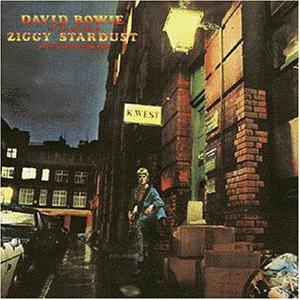
| Artist: | David Bowie |
| Title: | Ziggy Stardust |
| Released: | 1972 |
| Label: | EMI Records |
| Time: | 38:23 |
| Producer(s): | David Bowie, Ken Scott |
| Appears with: | Tin Machine |
| Category: | Pop / Rock |
| Rating: | ******.... (6/10) |
| Media type: | CD |
| Purchase date: | 2002.09.17 |
| Price in €: | 7,99 |
| Web address: | www.davidbowie.com |